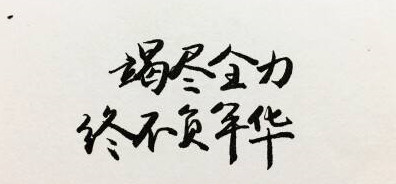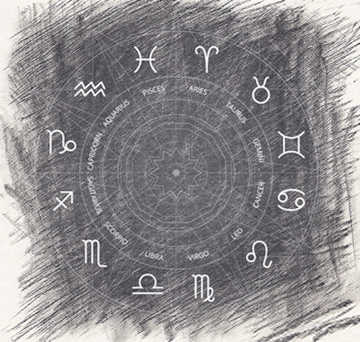 摘要:
初二英语语法句型第一单元一般将来时1)shall用于第一人称,常被will所代替。“will+do”will在陈述句中用于各人称,在争求意见时常用于第二人称。Whichparagr...
摘要:
初二英语语法句型第一单元一般将来时1)shall用于第一人称,常被will所代替。“will+do”will在陈述句中用于各人称,在争求意见时常用于第二人称。Whichparagr... 初二英语语法句型
第一单元
一般将来时
1) shall用于第一人称,常被will 所代替。
“will+do” will 在陈述句中用于各人称,在争求意见时常用于第二人称。
Which paragraph shall I read first.
Will you be at home at seven this evening?
2) be going to +不定式,表示将来。
a. 主语的意图,即将做某事。
What are you going to do tomorrow?
b. 计划,安排要发生的事。
The play is going to be produced next month。
c. 有迹象要发生的事
Look at the dark clouds, there is going to be a storm.
3) “be +doing”表将来,按计划或正式安排将发生的事。
We are to discuss the report next Saturday.
4) be about to +不定式,意为马上做某事。
He is about to leave for Beijing.
注意:be about to 不能与tomorrow, next week 等表示明确将来时的时间状语连用。
练习题:http://www.zjrawx.com/wywz/ShowArticle.asp?ArticleID=1352
第二单元
征求对方意见,和一般过去时
一般过去时的用法
1)在确定的过去时间里所发生的动作或存在的状态。
时间状语有:yesterday, last week, an hour ago, the other day, in 1982等。
Where did you go just now?
2)表示在过去一段时间内,经常性或习惯性的动作。
When I was a child, I often played football in the street.
Whenever the Browns went during their visit, they were given a warm welcome.
3)句型:
It is time for sb. to do sth "到……时间了" "该……了"
It is time sb. did sth. "时间已迟了" "早该……了"
It is time for you to go to bed. 你该睡觉了。
It is time you went to bed. 你早该睡觉了。
would (had) rather sb. did sth. 表示'宁愿某人做某事'
I'd rather you came tomorrow.
4) wish, wonder, think, hope 等用过去时,作试探性的询问、请求、建议等。
I thought you might have some. 我以为你想要一些。
比较:
一般过去时表示的动作或状态都已成为过去,现已不复存在。
Christine was an invalid all her life.
(含义:她已不在人间。)
Christine has been an invalid all her life.
(含义:她现在还活着)
注意: 用过去时表示现在,表示委婉语气。
1)动词want, hope, wonder, think, intend 等。
Did you want anything else?
I wondered if you could help me.
2)情态动词 could, would.
Could you lend me your bike?
练习题http://blog.sina.com.cn/s/blog_5c79d0ce0100az6y.html
第三单元
过去进行时
过去进行时
1) 概念:表示过去某时正在进行的状态或动作。
2) 过去进行时的主要用法是描述一件事发生的背景;一个长动作发生的时候,另一个短动作发生。
3) 常用的时间状语
this morning, the whole morning, all day yesterday, from nine to ten last evening, when, while
My brother fell while he was riding his bicycle and hurt himself.
It was raining when they left the station.
When I got to the top of the mountain, the sun was shining.
典型例题
1) Mary ___ a dress when she cut her finger.
A. made B. is making C. was making D. makes
答案C. 割伤手指是已发生的事情,应用过去时。同 时,when表时间的同时性,"玛丽在做衣服时"提供事情发生的背景,因此用过去进行时。
2) As she ___ the newspaper, Granny ___ asleep.
read; was falling B. was reading; fell C. was reading; was falling D. read;fell
答案B.句中的as = when, while,意为"当……之时"。描述一件事发生的背景时,用过去进行;一个长动作发生的时候,另一个短动作发生。句意为 "在她看报纸时,奶奶睡着了。"句中的 fell (fall的过去时),是系动词,后跟形容词,如:fall sick。
练习题http://blog.hfyhjy.com/u/5388/default.html
第四单元
直接引语和间接引语可以看书上P100
用过去时就行了
练习题http://blog.sina.com.cn/s/blog_5224b14b0100bhra.html
第五单元
If引导的条件状语从句
条件状语从句
连接词主要有 if, unless, as/so long as, on condition that 等。.
if 引导的条件句有真实条件句和非真实条件句两种。非真实条件句已在虚拟语气中阐述。
unless = if not.
Let's go out for a walk unless you are too tired.
If you are not too tied, let's go out for a walk.
典型例题
You will be late ___ you leave immediately.
A. unless B. until C. if D. or
答案A。 句意:除非你立即走,否则你就回迟到的。可转化为 If you dong leave immediately, you will be late. B、D句意不对,or表转折,句子如为 You leave immediately or you will be late.
和 will和would
注意:
1)would like; Would like to do = want to 想要,为固定搭配。
Would you like to go with me?
2)Will you…? Would you like…? 表示肯定含义的请求劝说时,疑问句中一般用some, 而不是any。
Would you like some cake?
3)否定结构中用will,一般不用would, won't you是一种委婉语气。
Won't you sit down?
练习题(这个较简单)
第六单元
现在完成时
现在完成时用来表示之前已发生或完成的动作或状 态,其结果的确和现在有联系。动作或状态发生在过去 但它的影响现在还存在;也可表示持续到现在的动作或 状态。其构成: have (has) +过去分词。
主要句型:①for+段时间②sincesince的四种用法
1) since +过去一个时间点 (如具体的年、月、日期、钟点、1980, last month, half past six)。
I have been here since 1989.
2) since +一段时间+ ago
I have been here since five months ago.
3) since +从句
Great changes have taken place since you left.
Considerable time has elapsed since we have been here.
4) It is +一段时间+ since从句
It is two years since I became a postgraduate
③“before”,放在句末④“already”,用于肯定句
⑤“yet”用于疑问句和否定句。。。。。。
一定要选我啊!我花了2个小时
初二英语语法有哪些
初二上
1. so+谓语+主语:…也一样. 谓语:be动词/助动词/情态动词
2. so+主语+谓语:的确如此,真的这样.
3. help yourself/yurselves to...请随便吃点...
4. 发现sb做sth : find sb doing sth
5. 不完全同意I don’t really agree.
完全不同意I really don’t agree.
6. 或者..或者...either…or…..就近原则
既不..也不..neither…nor….就近原则
既....又...both…and….谓语用复数
7. 看起来,似乎It seems/seemed that…..
8. 由于...而闻名be famous for….
9. 餐馆就餐用语:a table for two/sit at the table by the window/here’s the menu/May I take your order?/could we have the bill?/That’s all.
10. 问路Which is the way to…/where is…/How can I get to…/Is there a..near here/Can you tell me the way to…/Can you tell me how I can get to…?
11. turn right at the third crossing/traffic lights在第3个路口往右拐=take the third crossing on your right
12. 过桥go across the bridge=cross the bridge
13. 走到路的尽头go up this road to the end=go on until you reach the end.
14. at the street corner在街角
15. on sb’s way to….在sb去…的途中/路上
16. what’s the matter?=what’s wrong?=what’s the trouble?怎么了?
17. be sick in hospital/in bed 生病住院/卧床
18. Maybe it is there=it may be there可能在那里.
19. It takes/took/will take sb+时间+to do sth. Sb做sth花费了…时间
20. 路途遥远It’s (5 kms)far(away) from…=That’s quite a long way.
21. wait for…等待
22. 五分钟的步行/驾驶路程:five minutes’ walk/drive
23. 迷路lose sb’s way/sb be lost/sb get lost
24. just then=just at that time/moment就在那时
25. 首先first of all=at first
26. a big city like Tokyo像东京这样的大城市
27. It’s easy/interesting/important/ (for sb) to do sth.(对sb来说)做sth是容易的/有趣的/重要的.
28. if 条件状语从句:从句一般现在时,主句一般将来时。如:If it rains tomorrow, I will not go to the zoo.
29. at the head /end of…在…的前/尾部
30. 我的背很疼. My back hurts badly.
31. 为…做准备get /be ready for…
32. stop sb (from) doing sth.阻止/不让sb做sth
33. have a good/wonderful time=enjoy oneself 玩得很高兴
34. answer in a tired voice/with a smile 用疲惫的声音/面带微笑回答。
35. quarrel with sb on sth 为了sth与sb 吵架
36. complain about sth 为…而抱怨,投诉
37. 生病用语:sb have a headache=sb have a pain in the head 头痛,have a cough 咳嗽,have/catch a cold 感冒,have cancer 得了癌症。
38. have /take the medicine three times a day 吃药,每天3次
39. take sb’s temperature 量体温,look over 医生检查病人
40. drink more water 多喝水,take more exercise 多锻炼
41. sb醒来: sb wake up, //sb 醒着的:sb be awake
42. sb 睡着了入睡 be/fall asleep
43. 忙着…bu busy doing/with sth
44. as soon as… 一… 就 ...
45. sleeping pills安眠药,light music 轻音乐
46. again and again 再三地,一次又一次
47. dream about…梦见…; dream of… 梦想成为…
48. 系动词+形容词: be/smell/taste/sound/look/feel/turn/get/become
49. make trouble制造麻烦,惹是生非,make a noise 制造噪音
50. every five minutes 每隔5分钟
51. instead/instead of…代替,取而代之,反而
52. write to sb. 写信给sb
53. get enough sleep 睡眠充足;stay happy 保持心情开朗
54. on time 准时;in time 按时
55. sb had better (not) do sth, sb 最好(别)做sth
56. land on …登陆
57. pull…out of..=pull…up from…拉上来
58. 不定代词:something/anyone/nobody/everywhere等
59. we’re all by ourselves=we’re alone.单独,独自
60. feel a little afraid/don’t be afraid. 有点害怕/别害怕
61. perhaps=maybe也许,可能
62. not …until… 直到…才…
63. sooner or later 迟早,早晚
64. ran after追//ran to …向..跑去// ran away 逃跑了
65. eat up 吃光// use up 用完
66. take (good) care of ..=look after…照顾,保管
67. 我自学英语learn English by myself= teach myself English
68. learn to do sth 学会…
69. 记日记 keep a diary,写日记 write a diary
70. leave sb by oneself 单独留下sb
71. join in the League/Party 入团/党
72. 越来越…:比较级+and+比较级; more and more +多音节词。如:bigger and bigger , more and more interesting
73. 越…, 就越…: the +比较级,the +比较级。 如:越大越好:the bigger, the better
74. turn on/off 开/关(电器),turn up/down音量开大/小
75. the whole story=all the story整个故事,整件事情
76. 过了一会儿after a while/moment
77. make faces 做鬼脸
78. 名胜,景点interesting places=places of interest
79. my hometown in Zhejiang 我浙江的老家
80. 暑假summer holidays; 五一假期 May 1st holiday
81. a strong wind大风;in the wind 在风里
82. make sb do sth. 使/逼迫sb做sth
83. 倒装句(为了强调)There he is./ Away he went.
84. with these words. 说完这些话,说着说着(伴随状语)。
85. I don’t know how to use it yet. 我不知道怎样使用它。
where to go. 我不知道该去哪里。
what to do. 我不知道该做什么。
86. wait for sb’s turn to do sth 等着轮到sb做sth
It’s sb’s turn to do sth. 轮到sb去做sth
被动:be+动词过去分词
eg:The trees are planted every year.
过去完成时:
过去完成时表示在过去某一时刻或某一动作之前已经发生的动作或情况,一般用在描述过去的某个时点已经发生过的动作或情况的句子中,即:过去的过去。如:
When we got there, the football match had already started.
当我们赶到时,足球比赛已经开始了。
过去完成时由“主语+had+动词过去分词”构成。其肯定句,否定句和疑问句结构如下:
肯定句:主语+had+过去分词+其他.
否定句:主语+had not+过去分词+其他.
疑问句:Had+主语+过去分词+其他?
He had worked for two years by then. 到那时他已经工作两年了。
He hadn't worked for two years by then. 到那时他已经两年不工作了。
Had he worked for two years by then? 到那时他已经工作两年了吗?
三、过去完成时的基本用法
1. 过去完成时表示在过去某一时间之前已完成的动作,表示对这一过去时间造成的结果或影响。常用以下几种方式:
(1) 用by,before等构成的介词短语。 eg:
Linda had learnt 10 English songs by the end of last month.
到上个月底,琳达已经学了10首英文歌曲。
John had repaired that machine before midnight.
在半夜之前约翰已经修好了那台机器。
(2) 用when, before, after等引导的时间状语从句。如:
The train had started before we got to the station.
在我们到达车站之前,火车已经开了。
The plane had taken off when I reached the airport.
我到达机场时,飞机已经起飞了。
2. 过去完成时还可以表示过去某一时间以前发生开始的动作持续到
这一过去的时间。常与for, since引导的表示一段时间的短语或从句连用。如:
I had worked in a hospital for three years
before I came here.我来这之前,在一家医院已经工作三年了。
He told us that he had worked here since 10 years before.
初二下
a pair of一双,一对
ask for 请求
ask sb (not) to do sth叫某人干
agree with赞同
all year round一年到头,全年
all kinds of各种,各样
all the time一直
argue with与争吵
around the world在世界各地
arrive in/at到达
at least至少
at a meeting在开会
at first首先
as…as possible尽可能
as…as象一样
be able to能够
be angry with 生气
be mad at对感到气愤
be good at擅长于
be careful小心 
be allowed被允许
be surprised惊讶
be supposed to被期望/被要求
be interested in对感兴趣
break the rule打破规则
by the way顺便
complain about抱怨
come along出现,发生
come true实现,达到
come in进来
cut in line插队
call sb. up打电话给
do/wash the dishes洗碗
drop litter乱扔垃圾
do well in在方面做得好
enjoy /finish doing sth喜欢/完成某事
end up结束
fall in love with爱上
fall asleep入睡
far from远离
first of all首先
fly to飞向
find out找到
…find it adj. to do sth
keep…down压低声音
keep out不让进入
look for寻找
look smart 看起来精干
look after照顾
look through浏览
let (sb) in让进
let sb do sth 让某人干
get along相处
get over克服
get annoyed生气
get bored厌烦
get an education受教育
get on (well) with与相处(好)
get injured受伤
give sb sth/give sth to sb给某人某物
give away赠送
go skating去溜冰
go out of从出去/来
have a fight with与打架/争吵
have a surprise party举行惊讶聚会
have a great/good time玩得愉快
have been to曾到过
hear about/of听说
hundreds of好几百
had better (not) do sth最好做
in a minute一会儿
in 100 years100年后
in good health身体健康
in front of 在前面
in the future 未来,将来
in the front of在前面
in the playground在操场
in/out of style时髦/过时
in silence默默地
in order to目的
in (Russian) style具有俄国风格
in public places在公共场合
make sb do sth使某人干
make a living (doing sth)谋生
make money赚钱
make friends with与交友
more than多于
need to do sth 需要干
not…anymore不再
not…until直到为止
not at all一点也不
on (my tenth) birthday在(我十岁)生日
on the phone在通话
on the one/other hand在一(另)方面
open up打开
put out熄灭
pick…up捡起
pass (sth) on (to sb)传递
pay for 付款
part-time job兼职工作
run out of用尽
run away逃跑
rather than胜于
right away立刻,马上
spend…on/(in) doing sth花费
seem to do sth好象干
sleep late睡懒觉
see sb do/doing sth看某人做/在做
start/begin to do/doing sth 开始干某事
adj.(special) enough够(特别
It take sb some time to do sth.花费某人时间干某事
the same as与相同
try (not) to do sth尽力(不)干
three quarters四分之三
turn on/off打开/关掉
turn up/down开大/关小
talk to/with与谈话
take care of照顾
take part in参加
take off起飞take away拿走
take place发生
take an interest in对感兴趣
take care (not) to do小心(不)做
thanks for (doing)谢谢(做)
wait in line排队等候
want to do sth/would like to do sth 想干
There will be fewer/less…
--What should I do?
--You should do…
--what were you doing when…?
--I was (doing)…when…
While he was (doing)…,a girl called the police.
If you wear jeans to the party, the teachers won’t let you in.
--How long have you been skating?
--I’ve been skating since nine o’clock/for five hours.
Would you mind (not) doing sth?
Could you please (not) do sth?
Why don’t you /not (do sth)?
How/What about sth/doingsth?
他告诉我他自从十年前就一直在这儿工作了。
初二英语语法知识重点
http://www.zhaoshiti.com.cn初中试题部分
http://www.zhaoshiti.com.cn/Soft/List.asp?cat_id=82&page=4
推荐程度:授权方式:免费软件软件大小:未知下载:23
2007-09-28 新目标英语八年级上Units1-6单元词组二
新目标英语八年级上Units1-6单元词组二 Unit 1 go to the movies 去看电影 look after=take care of 照顾 surf the internet 上网 healthy lifestyle 健康的生活方式 go skate boarding 去划板 keep healthy=stay healthy 保持健康 exercise=take (much) exercise=do sports锻炼 eating habits 饮食习惯 take..
推荐程度:授权方式:免费软件软件大小:未知下载:31
2007-09-28 八年级英语上学期重点短语及句型
Unit 1 1.watch TV 看电视 2.go to the movies 去看电影 3.on weekends 在周末 4.hardly ever 几乎不 5.how often 多久一次 6.every day 每天 7.once a week 一周一次 8.twice a month 一月两次 9.do homework 做家庭作业 10.the result of……的结果 11.as for 至于,对于 12.read a book 看书 1..
http://www.zhaoshiti.com.cn/Soft/List.asp?cat_id=82
2007-11-21 八年级上学期期末英语试卷
易门县2005/2006学年八年级上学期期末教学水平检测英语试卷 (全卷四个部分;满分:100分;考试时间:120分钟) 第一部分 听力(共四节,满分20分) 第一节(共5小题,每小题1分,满分5分) 听句子,选择与句子内容相关的
推荐程度:授权方式:免费软件软件大小:未知下载:48
2007-11-21 八年级(上)学期英语期末考试题
2007学年度全椒三中八年级(上)学期英语期末考试题 单项选择(每小题1分,共15分) 1. He is than me. A. quieter B. quiet C. more quiet D. a little quite 2. There is going to a meeting tomorrow. A. have B. be C. is D. are 3. How was the movie It was . I didnt like ……
推荐程度:授权方式:免费软件软件大小:未知下载:52
2007-11-19 新目标英语八年级(上)英语重点短语、词组、句型复习
新目标英语八年级(上)英语期末复习重点短语,词组和句型 Unit 1 on weekends 在周末 go to the movies 去看电影 watch TV 看电视 surf the Internet 上网冲浪 twice a week 一周两次……
推荐程度:授权方式:免费软件软件大小:未知下载:54
2007-11-19 八年级英语(上)期末测试题
八年级(上)英语期末测试题基础知识综合测试 I.根据句意及首字母提示补全单词:(10分) 1. – Can she play the violin -- Of course ! She is a famous v_______ 2. – What are you going to ……
推荐程度:授权方式:免费软件软件大小:未知下载:40
2007-11-19 新目标八年级英语(上)期末考试卷
新目标英语八年级(上)期末考试卷 (时间120分钟,满分100分) 考生注意:所有题目必须书写在答题卡上. 第一部分 选择题(58分) 一,听力之窗,你准备好了吗 同学们,测一测相信你的听觉最棒!(20) 第一节,Listen to the sentences and choose the correct responses.(5分) ( ) 1. A. Sure. B. Im glad to hear that……
推荐程度:授权方式:免费软件软件大小:未知下载:47
2007-11-19 八年级英语(上)期末复习 Units8-9
八年级(上)英语期末复习 Units8-9 Class _____ Name ___________ I.写出下列短语. 有点病 _______ ________ _________ 听到后我很难过 _______ _______ _______ ________ ________ 最好做某事 _________ ________ ……
推荐程度:授权方式:免费软件软件大小:未知下载:25
2007-11-19 八年级(上)英语期末考试卷
八年级英语(上)期末考试卷 (满分100 时间90分钟) 笔试部分(80分) I,词汇 (A) 辨一辨,选择符合图的意思的选项.(2.5分) 1.( ) 2.( ) 3 ( ) 4 ( ) 5 ( ) A.by boat B.have a piano lesson C.junk food D.ice skating E.get good grades (B) 根据首字母提示,用单词的……
推荐程度:授权方式:免费软件软件大小:未知下载:25
2007-11-19 仁爱英语八年级(上)期末阶段复习专项练习
仁爱八年级英语(上)期末阶段复习专项练习 * 同义句集中演练坊* 1. They are good at playing football. They play football _____ _____. 2. You must look after yourself and keep healthy. You must ______ _____ _____yourself and keep _____. 3. Jane will find ……
我只摘录一小部分,还有其他各科的你自己看有没有你需要的吧.Good lucky!
初二英语语法总结
英语常用句型1. 否定句型
1) 一般否定句
I don't know this. No news is good news.
There is no person (smoke)/not a person/not any person (smoke) in the house.
2)特指否定
He went to his office, not to see him.
I am sorry for not coming on time.
I don't think/believe/suppose/feel/imagine you are right.
3)部分否定
All the answers are not right//All is not gold that glitters
I don't know all of them.//I can't see everybody/everything.
Both of them are not right.
4)全体否定
None of my friends smoke.//I can see nothing/nobody.
Neither of them is right.//Nothing can be so simple as this.
5) 延续否定
You didn't see him, neither/nor did I.
You don't know, I don't know either.
He doesn't know English, let alone/to say nothing of/not to speak of (更不用说) French.
6) 半否定句
We seldom/hardly/scarcely/barely hear such fine singing.
I know little English. I saw few people.
7) 双重否定
You can't make something out of nothing.//What's done cannot be undone.
There is no sweet without sweat.//No gain without pains.
I can't help /keep/ laughing whenever I hear it.
No man is so old but (that) he can learn.
8)排除否定
Everyone is ready except you.//He did nothing but play.
But for your help, I couldn't do it.
9)加强否定
I won't do it at all.//I can't see it any more.//He is no longer a boy.
2. 判断句型
1) 一般判断句
It is important for us to learn English.
It is kind of you to help me sincere means honest.
The boy is called/named Tom.
We regarded/consider it as an honor.
2)强调判断
It is English that we should learn.//It is he who helped me a lot.
3)弱式判断
Your sentence doesn't sound/look/appear/feel right.
You look/seem as if/as thought you had been there before.
Maybe/Perhaps/ she is ill.
He is probably ill.//He is likely ill. //It is possible that he is late
4) 注释判断
He can remember so many English words, that is (to say) he is a living dictionary.(活字典)
5) 正反判断
That sounds all right, but in fact it is not.
6) 比较判断
It is more a picture than a poem.
7) 互斥判断
He or you are wrong. Either he is right or I am.
3. 祝愿祁使句式
1) 一般句式
Study hard and keep fit. Be brave! Don't be shy! Get out of here.
2)强语式
Do tell me. Never tell a lie.
3) 委婉祈使句
Please tell me the true. Would/Will/Won't do me a favor?
Would/Do you mind my smoking? What/How/ about going on foot?
4)建议祈使句
Let us go. Let us know the time. Don't let the fire out.
Let's not waste the time. You'd better start early.
Shall we listen to some music? Why don't you get something to drink?
Suppose/supposing you pick me up at about six?
I suggest we (should) take the train.
5)祝愿句
Success to you! //Wish you a good journey.
May you have a happy marriage. //Here's to your success!
Allow me to propose a toast to our friendship!
4. 感叹句型
How well he speaks! //How kind she is! //What a nice weather it is!
Here he comes! //Such is life! //Wonderful! // Help!
5. 疑问句型
1) 一般疑问句
Is he a doctor?//Do you the way to the station?
2)反意疑问句
He is a teacher, isn't he?//It is quite cheap, don't you think?
3) 特殊疑问句
What is the distance/width/size/population/temperature/fare?
Who is he? What is he?(干什么的)//What is he like? // How is he?
How do you like him? //What do you think of him?
What ever do you mean by saying this?
4)选择疑问句
He is a doctor or a nurse?
5)间接疑问句
Do you know how old he is? //Tell me if (whether) you like it.
What do you think/say/suppose I should do?
6. 数词句型
1) 表数目
It is exactly ten o'clock.//It is five miles away from here.
He is more than/over/ at least not less than 20.
He is under/at most/no more than 20.
2)表年月日
He was born on April 22 1994/in 1994 on the morning of Oct.1.
3)表年龄
He is 20 years old/years of age.//He is at the age of 10.
4)表倍数
It is four times that of last years.
This is four times as big (again) as that one.
This is four times bigger than that one.
The income is double what it was.
The output of coal was 200% greater than in 1998.
5)表计量
It is 10 meters long/wide/high.//It costs me 100 yuan.
I spent 10 hours to finish it.//It took me 10 days to finish it.
It is worth 100 yuan.
7. 关联指代句型
1)两项关连
I have two books, one is Chinese; the other English.
I have five books, one is Chinese; the others English.
To say is one thing, but/and/ to do is another.
One the one hand, I am your teacher, and on the other hand, I am also you friend.
Some like to play football, others are fond of basketball.
2)先后顺序
First/firstly, I wish good health, second/secondly success in your study, third/thirdly good luck in everything.
First stop, then look, finally cross.
At first/in the beginning/ he word hard. Later/Afterwards he is not so diligent.
3)修饰限制
This is the same book as I lost yesterday.
This is the same book that I lost yesterday.(同一本书)
Don't trust such a man as over praise you.
He/One/Those/They who should come failed to appear.
A man/A person/The one/Anyone/People who saw her liked her very much.
The day/time/moment will come when China is strongest in the world.
4) 两项连接
He can speak not only English but also French.
The book is both interesting and instructive.
It is neither cold nor hot.
Please either come in or go out.
The old worker has experience and knowledge as well.
5)加和关系
Besides literature, we have grammar and writing.
Apart from oxygen, there are some other gases in the air.
In addition to "if", there is many other conjunctions that can introduce conditional clauses.
I must go now, incidentally, if you want that book.
You seem to like tea, so do I.
8. 比较句型
1)等比句
He is as tall as I. // He is the same height as I.
She is no less diligent than he. The lab is no better than a cottage.
2) 差比句
I speak English worse than he does.//He is not so/as tall as I am.
Our knowledge is much inferior to their.
3) 极比句
He is the tallest of all in the class.
None/No one/ is so blind as those that won't see.
Nothing is so easy as this.
4)比例句
The more a man knows, the more he feels his ignorance(无知).
5) 择比句
He is taller than any other boy in the class
It is better late than never.//They would die than live as slaves
He prefers doing to talking//He prefers to do rather than to talk.
He prefers mathematics to English.//I'd rather stay here.
6)对比句
You think me idle, but on the contrary, I am busy.
They are working hard while you are wasting your time.
9. 比喻句型
We must work like him.//He behaves as his father does.
He speaks English as if/though he was a foreigner.
10. 条件假设句
1) 一般事实
If we succeed, what will the people say?
Suppose it rains, what shall we do?
Persevere(坚持) and you'll succeed.
2)虚拟条件句
If I were you, I would go.//If you had seen it, you would have been moved.
3)反条件句
Unless you try, you'll never succeed.//Don't move, or/else/otherwise I'll shot.
4)唯一条件句
If only I have another chance, I shall do better.
Only in this way can we learn English well.
So/As long as we don't lose heart, we'll succeed.
5)推论条件句
Since that is so, there is no more to say.
Now that you are grown up, you must stop this behavior.
11. 时间句型
1)一般时
When I see him, I'll tell him.
2) 表同时
You'll grow wiser as you grow older.
Work while you work, play while you play.
He worked, at the same/in the meantime he listened to the music.
3)限制时
Every/each time when I went to his house, he was out.
By the time that we got there, he was out.
4)交替时
Sometimes he sings, sometimes he dances.
At one time the baby cries, at another it talks.
5)先时
I stopped hem before he began to talk with me.
6)后时
I'll tell you after I finish it.
7)紧接时
As soon as I see him, I'll tell him.
Once you begin, you must continue.
The (very) moment/instant (that) I saw him, I recognized him.
On hearing the news, she bust into tears.
Hardly had I seen the light, when I heard a loud thundering.
8)延续时
I haven't seen him since I came here.
A friend is never know till/until a man have need.
12. 地点句型
1) 一般地点
Where have you been?
Where there is a will, there is a way.
2)方位
Hebei lies in the east of China.
Japan is lies to the east of China.
The house faces (to) the south.
He is sitting at the front of the classroom
He is standing in front of/before me.
He is sitting at the back of/behind me.
He is sitting in the back of/at the rear of the classroom.
He is sitting next to/besides me.
He is sitting close to/near me.
At the top of/On top of the shelf, there are some books.
He is sitting on the left/right.
The mountain you see to the right is the Purple Mountain.
13. 原因句型
He didn't go to school because he was ill.
Since we are all here, let's begin our meeting.
It might rain yesterday, for the ground was wet.
Now (that) we have finished the work, we can go home.
I am glad to meet you.
I am sorry that I hear that.
Thank you for your help.
That is why he failed to come.
He didn't come because of/on account of the weather.
He went out of curiosity.
I succeeded thanks to his help.
This failure is due to the fact they lack experience.
Owing to our joint efforts, the task was fulfilled.
What are studying English for?
For what reason did you choose this?
What's the point of asking his to do that?
How come you never told me about it?
What with the wind and what with the rain, our walk was spoiled.
14. 目的句型
He stopped aside so that she could go in.
He sits in the front in order that he can see words clearly.
He gets up early so as to/in order to have time to do exercises.
He repeated it for fear that there should be any mistake.
15. 结果句型
It was very cold, so that the river froze.
They cost a lot of money, so/therefore we use them carefully.
He is such a good man that every one likes him.
He ran so fast that no one could catch him.
He hurried to the house only to find that it was empty.
I was caught in the rain. As a result, I had a bad cold.
16. 程度句型
How often do you write to your parents?
How long do you stay at home?
It is so beautiful that we all love it.
It is too big for you.
He is too excited to speak.
He is not old enough to know this.
The letter must be sent as soon as possible
You must work as hard as you can.
As far as I know, I can speak only English.
17. 让步句型
Though/Although he is rich, (yet/still) he doesn't show off.
Yang as he is, he know a lot of things.
Even if/though he succeeded, he was not proud.
No matter what you say, I'll still try to do it.
Keep calm, whatever happens.
In spite of this, we must go ahead with our plans.
Regardless of all the difficulties, we'll fight it out to the end.
18. 转折句型
I searched everywhere but could not find him.
You may go, only return quickly.
He is seriously ill, still there is hope of his recovery.
It looked like rain, however it was clear in the afternoon.
He is still young, yet he is high up in the position.
He didn't tell me the truth, I know it, though.
19. 省略句
I think/say/suppose/expect/believe/hope so.
Why not come earlier next time?
初二英语语法大全
中考重点句型
一、常使用动词不定式的短语
1、It’s time to do sth.\ It’s time for sth
该作某事的时候了.
2、can’t wait to do sth. 迫不及待要作某事
3、ask /telle sb. (not ) to do sth.
要求/告诉某人(不)作某事
4、allow sb. to do sth. 允许某人作某事
5、be supposed to do sth. 应该作某事
6、Would like /want (sb.) to do sth. 想要作某事
7、have sth/nothing to do 有…时要做/与…无关
8、find it +adj. to do sth. 发觉作某事…
9、prefer to do sth. rather than do sth.
宁愿作某事,而不愿作某事
10、It’s +adj. for sb. to do sth.
作某事对某人来说…
11、It’s better /best to do sth. 最好做某事
12、It takes sb. sometime. to do sth.
某人做某事用了一些时间
二、常用动名词的短语
1、 enjoy /like /love doing sth. 喜欢做某事
2、 keep /keep on /carry on / go on doing sth.
继续做某事
3、feel like doing sth. 想要做某事
4、practise doing sth. 练习作某事
5、give up doing sth. 放弃作某事
6、be good at= do well in\on doing sth. 擅长作某事
7、pay attention to doing sth. 注意作某事
8、what about/ how about doing sth.
….怎么样(好吗)?
9、Thank you for doing sth. 为…感谢某人
10、mind doing sth. 介意作某事
11、be used for doing sth./ be used to do sth. 、
被用来作某事
12、spend …(in) doing sth. 花时间作某时
13、be busy doing/ with sth. 忙于作某事
14、finish doing sth. 作完某时
15、look forward to doing. 盼望做某事
16、prefer doing sth. to doing sth. 喜欢…胜过…
17、be/get used to doing sth. 习惯作某事
18、keep / stop/ prevent sb. from doing sth.
阻止某人作某事
三、省略动词不定式的短语
1、一看二听三使役
see/ hear/ feel/ notice/ look at /listen to sb. do sth.
看见/听见/感觉/注意某人作某事
make /let /have sb. do sth. 使/让某人做某事
2、help sb. (to) do sth/ with sth.帮助某人作某事
3、 had better (not) do sth. 最好(不)做某事
4、 Why don’t you/ not do sth.为什么不作某事
5、Would /Will / Could you please (not) do sth.
请你(不)作某事好吗?
四、 同义词比较
1、 stop to do sth. 停下正在做的事去作另一件事
stop doing sth. 停止正在作的事
eg. When the teacher came into the classroom, the students stopped talking. After he worked for an hour, he stopped to have a rest.
2、 forget / remember to do sth.
忘记/记得要去作某事
forget / remember doing sth.
忘记记得曾经做过某事
eg. Please remember to bring my book to school.
I remember doing my homework
3、 used to do sth. 过去常常作某事
be used to do sth. 被用来作某事
be used to doing sth. 习惯于作某事
eg. My father used to smoke.
Wood is used to make paper.
I am used to getting up early.
4、So +be/助动词/情态动词 + 主语
…也一样
So +主语+be/助动词/ 情态动词
是呀,表示赞同别人的观点
Neither + be /助动词/ 情态动词+主语
…也不一样(用于否定句)
eg. He has been to Beijing. So have I.
It’s a fine day. So it is.
She doesn’t like eggs. Neither do I.
5、 too…to do sth. 太…而不能…
so +adj. /adv + that(从句) 如此…以致…
such +(a/an +adj.)+n.+ that(从句)
如此…以致…
(not) enough (for sb.) to do sth.
(对某人来说)做某事(不)够
eg. The boy is too young to go to school.
The boy is so young that he can’t go to school.
He is such a young boy that he can’t go to school.
The boy is not old enough to go to school.
五、常考知识点
1、keep +adj. 保持…状态
keep (sb.) doing sth.
继续做某事/使某人老是做某事
eg. Everyone should keep our classroom clean.
It’s too late, but he still keeps working.
Lily always keeps us waiting for her.
2、make+ sb. + n. 使某人成为
make + sb. + adj. 使某人…
make sb. do sth. 使某人做某事
Sb. be made to sth. 某人被迫做某事
eg. We made Peter our monitor.
Books make us happy.
He often makes me laugh.
The workers were made to work 12 hours a day.
3、I don’t think that 我认为…不
eg. I don’t think you are right.
4、It’s /was/has been+ some time +since+一般过去时… 自从…以来有多久了
eg. It has been two years since we met last time.
6、 What do you mean by?=What does .. mean?=what is the meaning of...?
是什么意思?
eg. What do you mean by “computer”?=What does “computer” mean?=what is the meaning of "computer"?
7、 What do you think of…/How do you like …?
你认为…怎么样?
eg. What do you think of this film /How do you like this film?
8、 What is/was/will …be like? ..怎么样?
eg. What is the weather like?
What will the life in the future be like?
9、 It’s said/ reported that… 据说/据报道
It's well known that 众所周知
It's thought that 大家认为
eg. It’s said that the population of the word would be 6 billion in 2050.
10、one of the +形容词最高级+名词复数
…其中之一
eg. Shanghai is one of the biggest cities in China.
11、neither…nor… 既不…也不(两者都不)
either…or…要么…要么/或者…或者/不是…就是
not only…but also… 不但…而且
以上e68a8462616964757a686964616f31333262363566三个词做主语时,要用就近原则
eg. Neither you nor he has been to the USA.
Either he or you go to the park.
Not only my mother but also my father is a teacher.
neither of 两者都不
either of 两者选一
none of 没有一个
以上三个做主语时,谓语动词用单数
All of 全部 Both of 两者都
以上二个做主语时,谓语动词用复数
12、比较级+ than +any other +名词单数
…比其余任何一个…
比较级+ than + the other+名词复数
eg. Shanghai is bigger than any other city=shanghai is bigger than the other cities in China.
13、When(当…的时候), if (如果), as soon as(一…就), until(直到…才), unless(除非/如果…不)这几个词引导的时间或条件状语从句时,主句要用一般将来时.
从句一般现在时
eg. I will call you when he comes.
If it doesn’t rain tomorrow, we will have a picnic.
As soon as I get to Beijing, I’ll come to see you.
He won’t go to bed until his parents come back.
Unless you work hard, you won’t catch up with others.
希望我的答案对你有帮助
初2英语语法
have sb do sth 让某人做某事
speng sth doing sth花....做某事
observe sb do sth注意到某人做某事
allow sb to do sth允许某人做某事
respect sb for sth 因某事尊敬某人
argue sb into doing sth说服某人做某事
encourage sb to do sth鼓励某人干某事
represent sth to sb向某人陈述某事
inteng sb to do sth打算让某人做某事
prepare sb to do sth让某人准备做某事
drive sb to do sth迫使某人做某事
begen to do sth开始做某事
used to do sth过去常常干某事
see sb do sth看到某人做某事
imagine sb doing sth想要某人做某事
invite sb to do sth邀请某人做某事
advise sb to do sth劝告某人做某事
decided to do sth决定做某事
apply to do sth建议某人做某事










